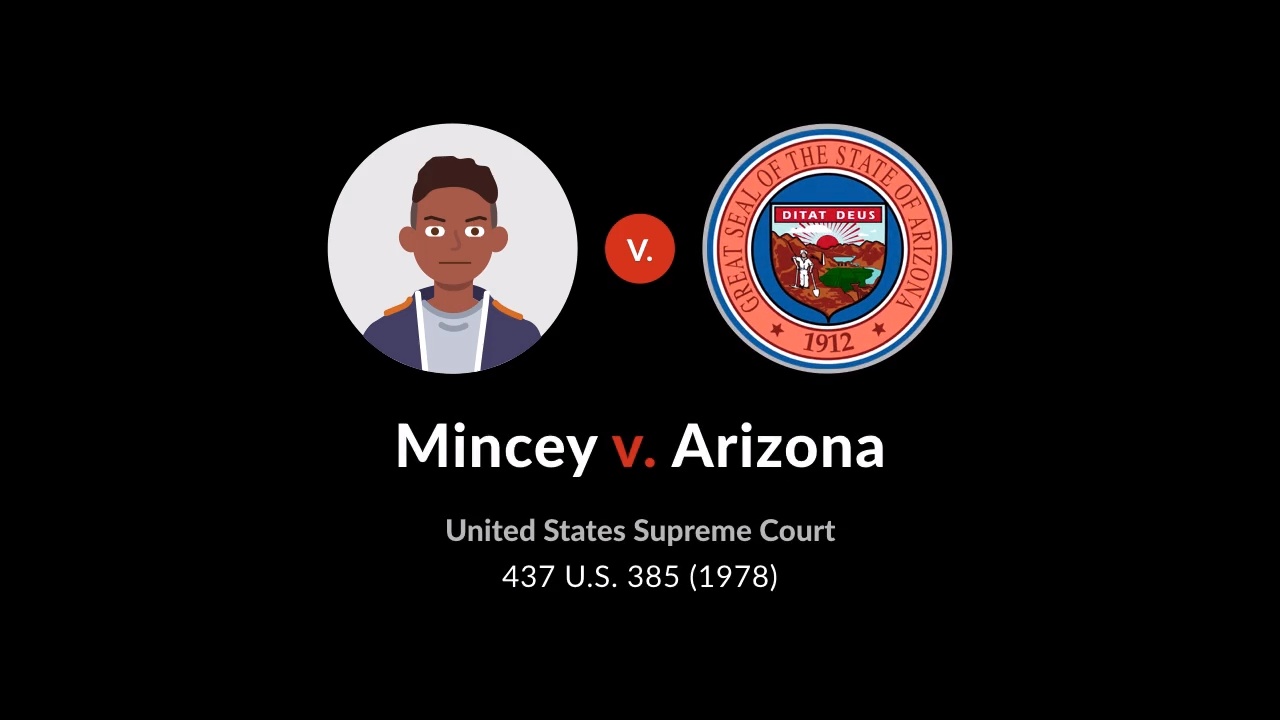Mincey v. Arizona established that the right to counsel is fundamental to our criminal justice system and must be protected at all critical stages of a criminal prosecution. This landmark case set an important precedent for the protection of individual rights and has had a lasting impact on the way criminal cases are handled in the United States.
The case arose from the arrest of Ernesto Mincey for murder. Mincey was not provided with an attorney until after he had been interrogated by the police and had confessed to the crime. The Supreme Court ruled that Mincey’s confession was inadmissible because he had not been advised of his right to counsel at the time of his interrogation.
Background of Mincey v. Arizona

The case of Mincey v. Arizona was a significant Supreme Court case that examined the Fourth Amendment’s protection against unreasonable searches and seizures. It involved the warrantless search of a home and the subsequent seizure of evidence that was used against the defendant in a criminal trial.
Significance of the Case
Mincey v. Arizona played a crucial role in shaping the Fourth Amendment jurisprudence. The Court’s decision established important limits on the government’s ability to conduct warrantless searches and seizures, protecting individuals from unreasonable intrusions into their privacy.
Legal Issue at Stake
The central legal issue in Mincey v. Arizona was whether the Fourth Amendment requires a warrant for the search of a home, even when the police have probable cause to believe that evidence of a crime is present.
Court’s Ruling and Reasoning
The Supreme Court ruled in favor of Mincey, holding that the warrantless search of his home violated the Fourth Amendment. The Court reasoned that the search was not justified by any exception to the warrant requirement and that the evidence obtained from the search should be suppressed.
Legal Basis for the Ruling
The Court’s ruling was based on its interpretation of the Fourth Amendment, which protects against unreasonable searches and seizures. The Court held that the search of Mincey’s home was unreasonable because it was not conducted pursuant to a warrant. The Court also held that the search was not justified by any exception to the warrant requirement, such as the plain view doctrine or the exigent circumstances exception.
Dissenting Opinions
Justice Rehnquist wrote a dissenting opinion, arguing that the search of Mincey’s home was justified by the exigent circumstances exception to the warrant requirement. Justice Rehnquist argued that the police had probable cause to believe that Mincey was committing a crime and that there was a risk that the evidence would be destroyed if they did not search the home immediately.
Impact and Implications
Mincey v. Arizona had a profound impact on the criminal justice system, particularly in relation to the Fourth Amendment’s protection against unreasonable searches and seizures.
The immediate impact of the ruling was to suppress the evidence obtained during the warrantless search of Mincey’s home. This resulted in the dismissal of the murder charges against him. The broader implications of the ruling were more far-reaching.
Subsequent Legal Developments, Mincey v. arizona established that
- The ruling in Mincey v. Arizona has been cited as precedent in numerous subsequent cases involving the Fourth Amendment.
- In 2001, the Supreme Court ruled in Kyllo v. United States that the use of thermal imaging to scan a home from outside without a warrant violated the Fourth Amendment.
- In 2012, the Supreme Court ruled in Florida v. Jardines that the use of a drug-sniffing dog to sniff the outside of a home without a warrant violated the Fourth Amendment.
Ethical Considerations
Mincey v. Arizona raised several ethical concerns, primarily regarding the balance between public safety and individual rights.
Balancing Public Safety and Individual Rights
The case highlighted the tension between the government’s responsibility to protect society and the individual’s right to privacy. The police’s warrantless search of Mincey’s home raised questions about the extent to which law enforcement can infringe upon individual rights in the pursuit of crime prevention.
Potential for Bias or Discrimination
The case also brought to light concerns about the potential for bias or discrimination in the application of the ruling. Critics argued that the ruling could lead to selective enforcement, with minority communities being disproportionately affected by warrantless searches.
Common Queries: Mincey V. Arizona Established That
What is the significance of Mincey v. Arizona?
Mincey v. Arizona established the right to counsel at all critical stages of a criminal prosecution.
What are the critical stages of a criminal prosecution?
The critical stages of a criminal prosecution include the initial appearance, arraignment, plea, trial, and sentencing.
What is the impact of Mincey v. Arizona on law enforcement?
Mincey v. Arizona requires law enforcement to advise individuals of their right to counsel at all critical stages of a criminal prosecution.